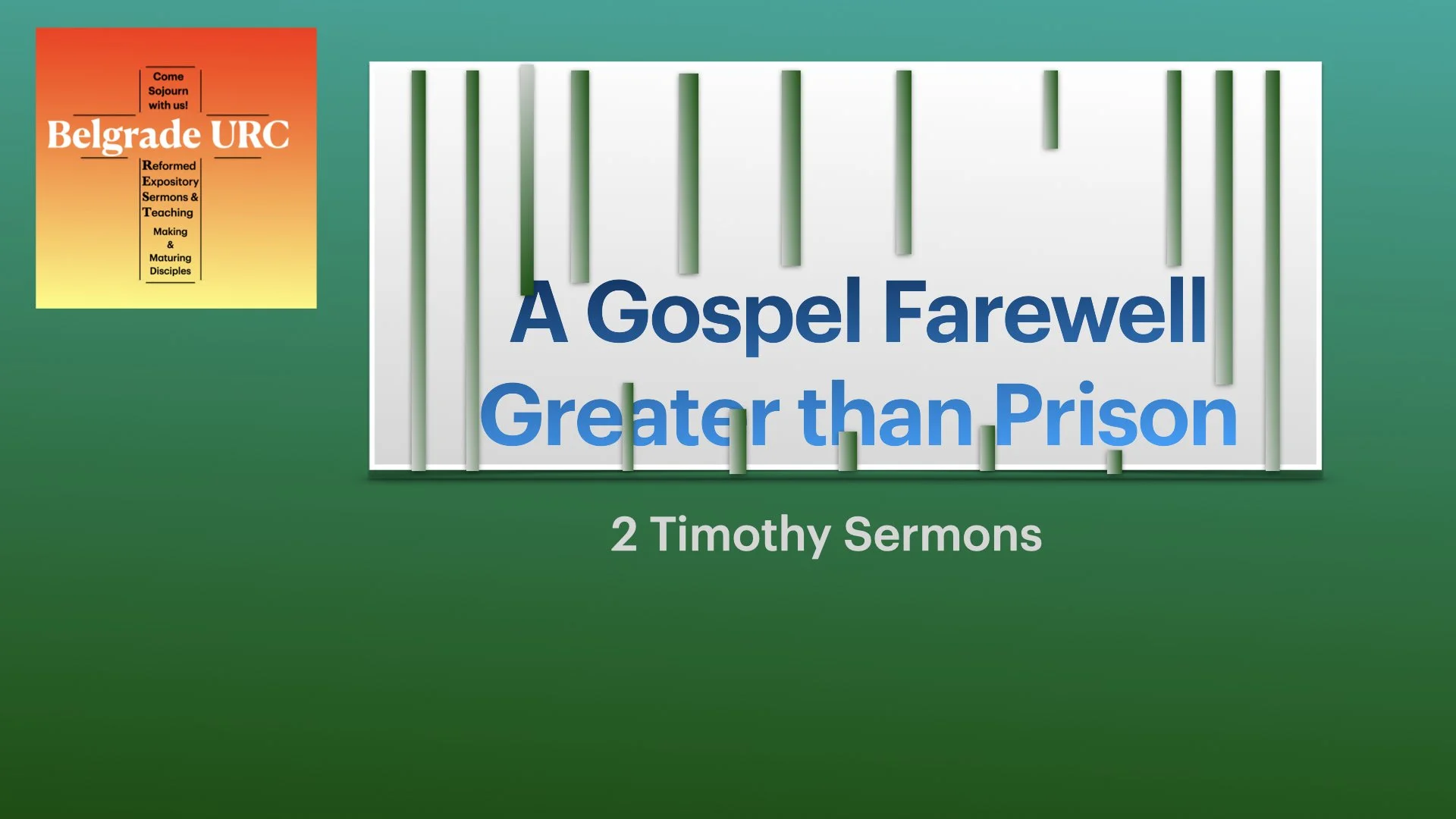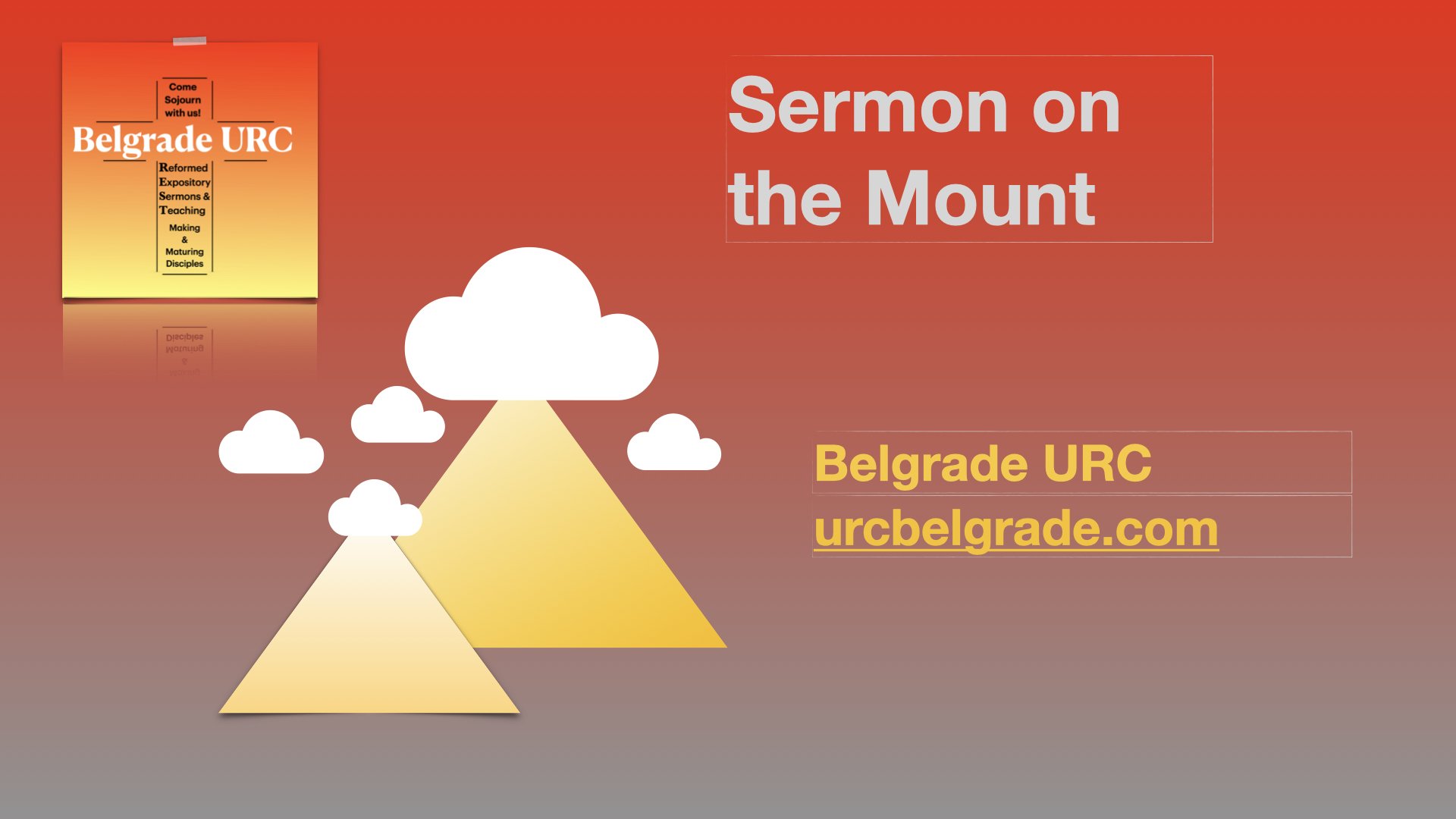God's Gracious Boundaries (Head 5; Art 4-6)(1 Peter 1:1-9)
/The doctrine of the perseverance of the saints is sometimes summarized as, "Once saved always saved." There is truth to this statement, but it radically misses the complexity of the Christian walk. God will certainly preserve his people until the end, but we are called to persevere by the Lord's grace. The challenge in this life is that we can have sinful desires that are contrary to God's kingdom. The Canons of Dordt warns us that God can hand us over to those desires. Where do we find our strength in this life to continue on our Christian sojourn?





